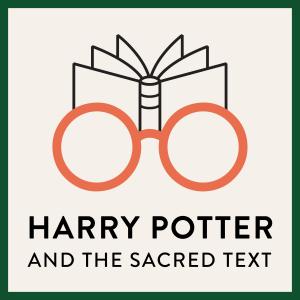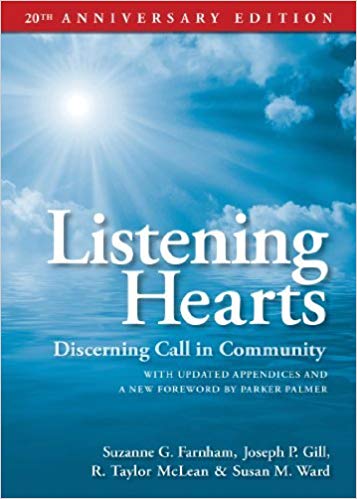On the occasion of ordaining a new minister in the Unitarian Universalist Living Tradition.
 One of my favorite podcasts is Harry Potter and the Sacred Text. It features two graduates of Harvard Divinity School reading the Harry Potter series with they same attention, care, and interpretive practices often reserved only for traditional sacred texts. The podcast started a little more than three years ago. And at the pace of a chapter per episode, they recently completed book five, The Order of the Phoenix.
One of my favorite podcasts is Harry Potter and the Sacred Text. It features two graduates of Harvard Divinity School reading the Harry Potter series with they same attention, care, and interpretive practices often reserved only for traditional sacred texts. The podcast started a little more than three years ago. And at the pace of a chapter per episode, they recently completed book five, The Order of the Phoenix.
One of the most poignant parts of each episode comes at the end when each of the co-hosts selects a character from that week’s chapter to receive a blessing. Vanessa, one of the co-hosts, has said about this practice that, “What I love about blessings is that…when you bless something, you are tapping in to your most vulnerable wish for someone. And that when you bless something, you are admitting that you have no power over something, and yet you are hoping with every fiber of your being.” I love that description of blessing.
The other co-host, Casper, has said, “Blessing is really a lost art these days, and it’s been something that’s so important in so many people’s lives. That’s something we want to retrieve a little bit.” I also appreciate this idea of retrieval: returning to the past to reclaim, recover, and even redeem ancient practices in ways that are relevant for today.
Unitarian Universalists can be a present- and future-oriented people. In the words of one of our classic hymns, we are a people who “revere the past, but trust the dawning future more.” But the tradition of ordination is ancient—and offering a blessing is a key part of this ancient practice. I was ordained on July 6, 2003—sixteen years ago this coming Saturday. That day—that service—was a blessing, as I hope today is for our ordinand. But I also want to let you all in on an open secret: it wasn’t enough. Well, it was for a while. Like any candidate on the verge of being ordained as a UU minister, I had excellent teachers, had read lots of books, had a three-year Master of Divinity degree, had been endorsed by an ordination council. And that was enough for a while. But after about three-years of full-time ministry, I felt a growing sense that I needed more training if I was going to sustain a decades-long ministry.
For me, it meant enrolling in a three-year, low-residency Diploma in the Art of Spiritual Direction program which ended up doubling in length to a total of six years, enabling me to also complete a Doctor of Ministry degree. Today, my continuing educational explorations have taken the form of a serious investment and focus on the practice of meditation.
Along these lines, UU ministry is in the midst of a significant paradigm shift from a “Learned Ministry” to a “Learning Ministry.” Although much is required to reach the point of ordination, it is now further required that all UU ministers engage in ongoing, lifelong, covenanted practices of continuing education. And even as I celebrate this shift to a ministry of lifelong learning, I want to offer one final blessing that can potentially serve as a counterbalance to all this ongoing “doing.”
There are ten thousand things that might fruitfully occupy one’s time and attention in full-time ministry, but none of us can do ten thousand things well. Trust me: I tried a few years ago, and ended up getting sick three times in a matter of months. Historically, I have rarely gotten sick, before or since, and that winter was a red flag that I was pushing through exhaustion too frequently and wearing down my immune system. In the years since, I have tried to set better boundaries and work more pragmatically and strategically.
In that spirit, I offer two quotes that have become touchstones for me in discerning a sustainable path forward. The first quote is from the book “Conjectures of a Guilty Bystander” by the twentieth-century Trappist monk Thomas Merton. He writes:
There is a pervasive form of modern violence to which the idealist…most easily succumbs: activism and over-work. The rush and pressure of modern life are a form, perhaps the most common form, of its innate violence. To allow oneself to be carried away by a multitude of conflicting concerns, to surrender to too many demands, to commit oneself to too many projects, to want to help everyone in everything is to succumb to violence. The frenzy of the activist neutralizes [their] work…. because it kills the root of inner wisdom, which makes work fruitful.” (86)
 Part of what I understand Merton to mean is that just because we are doing a lot of things doesn’t mean we are being effective.
Part of what I understand Merton to mean is that just because we are doing a lot of things doesn’t mean we are being effective.
The second quote is from a book titled Listening Hearts: Discerning Call in Community. They write:
Even when a need exists and we are well qualified to meet it, we are not necessarily called to respond to it. Something may seem logical for us to do, but that does not mean that [we are] call[ed] to do it…. Simply because a task or undertaking is good to do, does not mean that we are called to do it or that we should continue doing it?. To be doing good can be the greatest obstacle to doing something even better.
Discernment between good and bad is often fairly simple. A much more complex choice is discerning good from better from best. May you find moments in ministry not only of the good, but also of the best–when you are in deep alignment with your gifts and graces.
Bless you—on this your Ordination Day.
Bless you, and may your ministry be a blessing.
That is my most vulnerable wish for you.
I have no power over it.
And yet I hope for it with every fiber of my being.
Amen. And blessed be.
The Rev. Dr. Carl Gregg is a certified spiritual director, a D.Min. graduate of San Francisco Theological Seminary, and the minister of the Unitarian Universalist Congregation of Frederick, Maryland. Follow him on Facebook (facebook.com/carlgregg) and Twitter (@carlgregg).
Learn more about Unitarian Universalism: http://www.uua.org/beliefs/principles
















